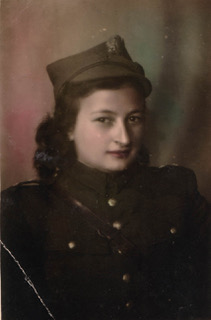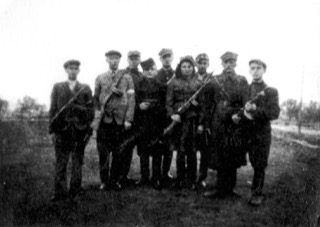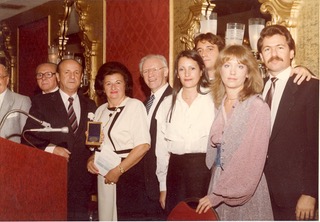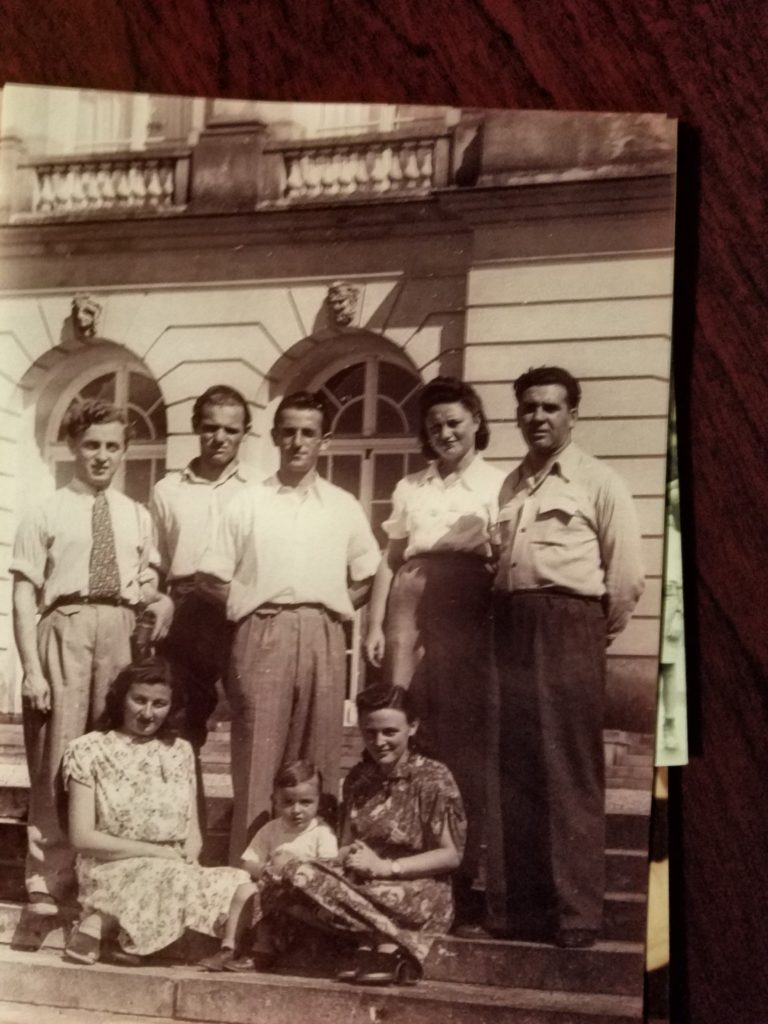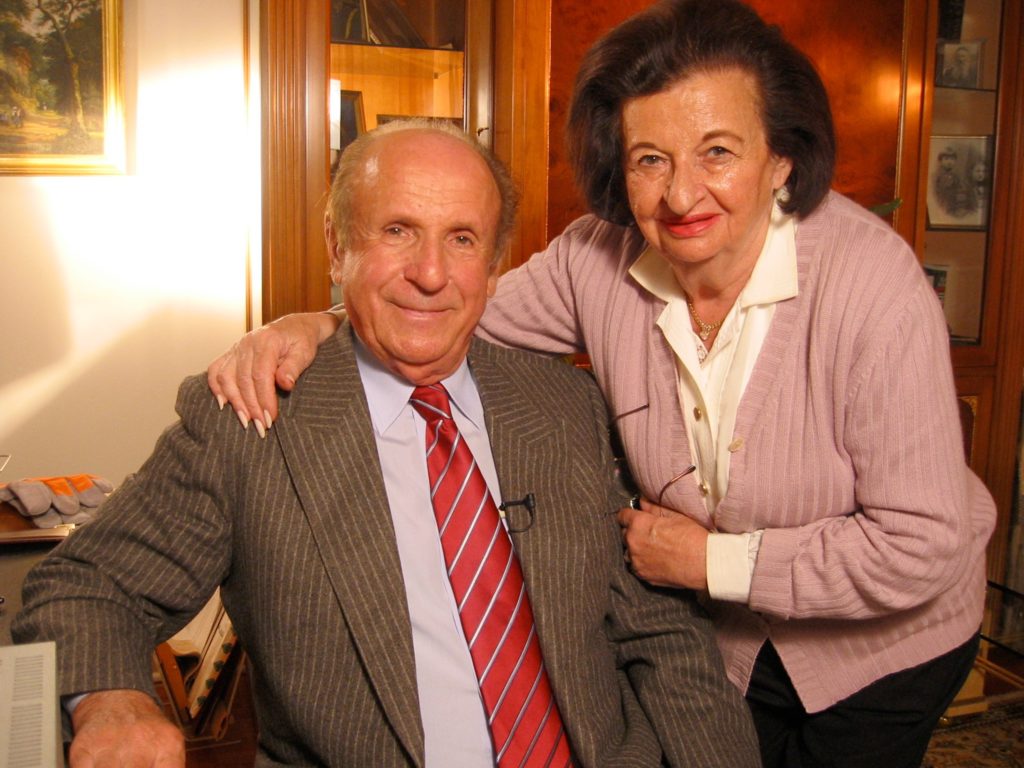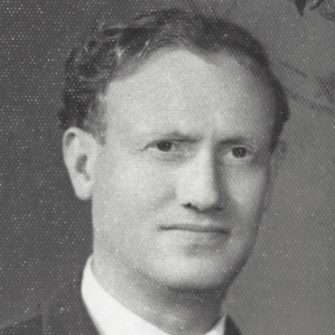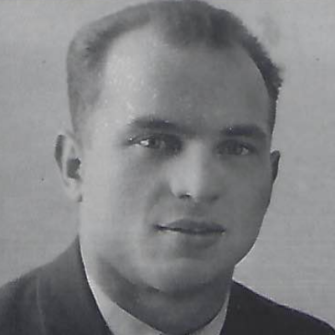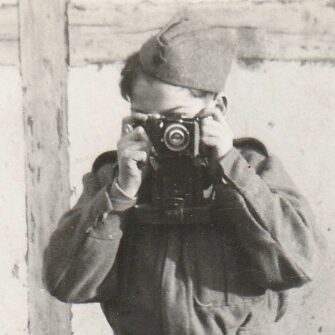Cesia Pomeranc was born on March 15, 1926, in the village of Wyryki near the river town of Wlodova, Poland to Bella Ita and Lazar Pomeranc. She had three brothers and three sisters. Her family lived a comfortable life, maintaining apple, plum, and pear orchards on their land. She attended a public school and had a private tutor for Jewish studies and prayer. Her mother was known as a warmhearted person who loved to cook for family and friends, and her father was a successful businessman in the lumber industry.
Their idyllic life was interrupted when the Germans occupied Poland in 1939. Cesia’s primary responsibility became hiding her two younger sisters in the attic when the Nazis made their sweeps to round up Jews for deportation. One evening, as the family sat around the dinner table, a German officer suddenly and shockingly appeared at their door to warn them that if they did not flee to the Russian side of the river, the family risked death. As was true for the vast majority of Polish Jews, fleeing was not an easy option. The Pomeranc family with their young children and aging grandparents remained.
In 1942, when Cesia was sixteen, the Germans deported her entire family to Adampol the slave-labor subcamp of the Sobibor extermination camp. The Nazis forced the family to work, with the exception of Abie, Cesia’s youngest six-year-old brother who had become the “pet” of the Commandant of the camp. After a few months of hard labor, and of hearing rumors of the mass exterminations of Jews, Cesia and her brothers learned that many young people had escaped captivity and found shelter with partisan groups in nearby forests. Cesia’s cousins, Jurek and Mordecai Cholomsky, along with their father Avram, were among those in the woods. The cousins were determined to rescue the Pomeranc family from Adampol, but the Germans became suspicious when they approached and they barely escaped while fleeing a barrage of gunfire. A few days later, with the blessing of her father, who promised to join her the following week, Cesia and her brothers Jack and Yurok escaped through the barbed wire of the camp and fled to the partisan campsite where they were reunited with their cousins. Cesia was taken to the cellar of a Polish farmhouse for safety, but she refused to remain there, insisting that she would rather be with the partisans and risk death than live alone in hiding. Several days later, a partisan brought a little boy to the campsite. Cesia cried, “This is my brother!” It was then she learned that the remaining Jews of Adampol, including her beloved family, had been lined up in front of a firing squad and murdered. Abie miraculously survived; he was shorter than the spray of bullets. Laying in shock, motionless, in a ditch for days, he crawled out and was found by a Jewish partisan. Abie remained with Cesia throughout the war.
Once, on a mission to find food in a local village, Cesia’s brother Jack sustained a bullet wound. Cesia stayed by his side and nursed him until he could be transported to a campsite with a doctor. On another occasion, the Germans approached a campsite where they were sheltering and ordered the partisans to surrender. Cesia, her brothers Yurok and Abie, and her cousins remained hidden. Those who surrendered were murdered immediately.
Within months, Cesia’s cousin Jurek joined with Jewish partisan leader Chiel Grynszpan who had about 95 men in his brigade. The group moved around for several weeks taking in other Jews hiding in the forest and grew to 125 partisans. Cesia was assigned the responsibility for cooking meals.
Eventually, the Grynszpan brigade joined with other Jewish partisan brigades led by Sam Gruber, Marion Dworecki, and Frank Blaichman. Gruber took note that some of the older women in the group took advantage of Cesia’s hard work and offered her the job of cooking for Frank and his group. They treated her and her little brother Abie with kindness and respect. In later years, Frank, referring to Cesia as his “dearest comrade,” would recall the sweet, shy, and beautiful girl who prepared delicious meals including pierogis and blintzes that tasted just like his mother’s.
Cesia and Abie remained with the group until liberation and during that time she and Frank fell in love. When they married in Lubartow, Poland the celebration continued for days with both Jewish and Russian partisans joyously dancing and singing. But grim reality set in; there was no home to return to. With their families murdered, and their communities decimated, Poland was not a place for young Jews to raise a family. They traveled first to Frankfurt, Germany where their first child, a daughter, Bella was born. In 1952 they emigrated to the United States and began life anew in New York City where their son Charles was born.
Frank became a successful real estate developer. Cesia became active in her community, involved with her synagogue and her fellow survivors. She served on committees and boards for The Friends of the Israeli Defense Forces, The American Society of Yad Vashem, and Hadassah. Cesia grieved for her lost family for the rest of her life but found comfort and joy with the family she and Frank created. Cesia was entirely devoted to her children and grandchildren Etan, Talia, Maya, Micah, Sabrina, and Noah, who gathered at her beautiful home for Shabbat, holidays, and birthdays to feast on her delicious meals and to celebrate survival, Yiddishkeit, and life.

